Stock market today: S&P 500 ekes gain as hopes for end of shutdown get major boost
3 Takeaways
-
Watch for continued widening in high-yield credit spreads as both U.S. and European markets show signs of renewed stress.
-
Monitor liquidity conditions closely—rising effective federal funds rates and a stronger dollar suggest tightening financial conditions may accelerate.
-
Keep an eye on the Equal-Weight S&P 500 (RSP) and regional banks (KRE) for confirmation that risk repricing is broadening across equity sectors.
Stocks were fairly weak yesterday, and thanks to Nvidia (NASDAQ:NVDA), it didn’t look nearly as bad. The S&P 500 fell just 28 basis points, but the RSP Equal Weight ETF (NYSE:RSP) declined by more than 80 basis points. In fact, there were over 1,400 more decliners than advancers on the NYSE. That left the overall S&P 500 market-cap-weighted index range-bound since last Friday.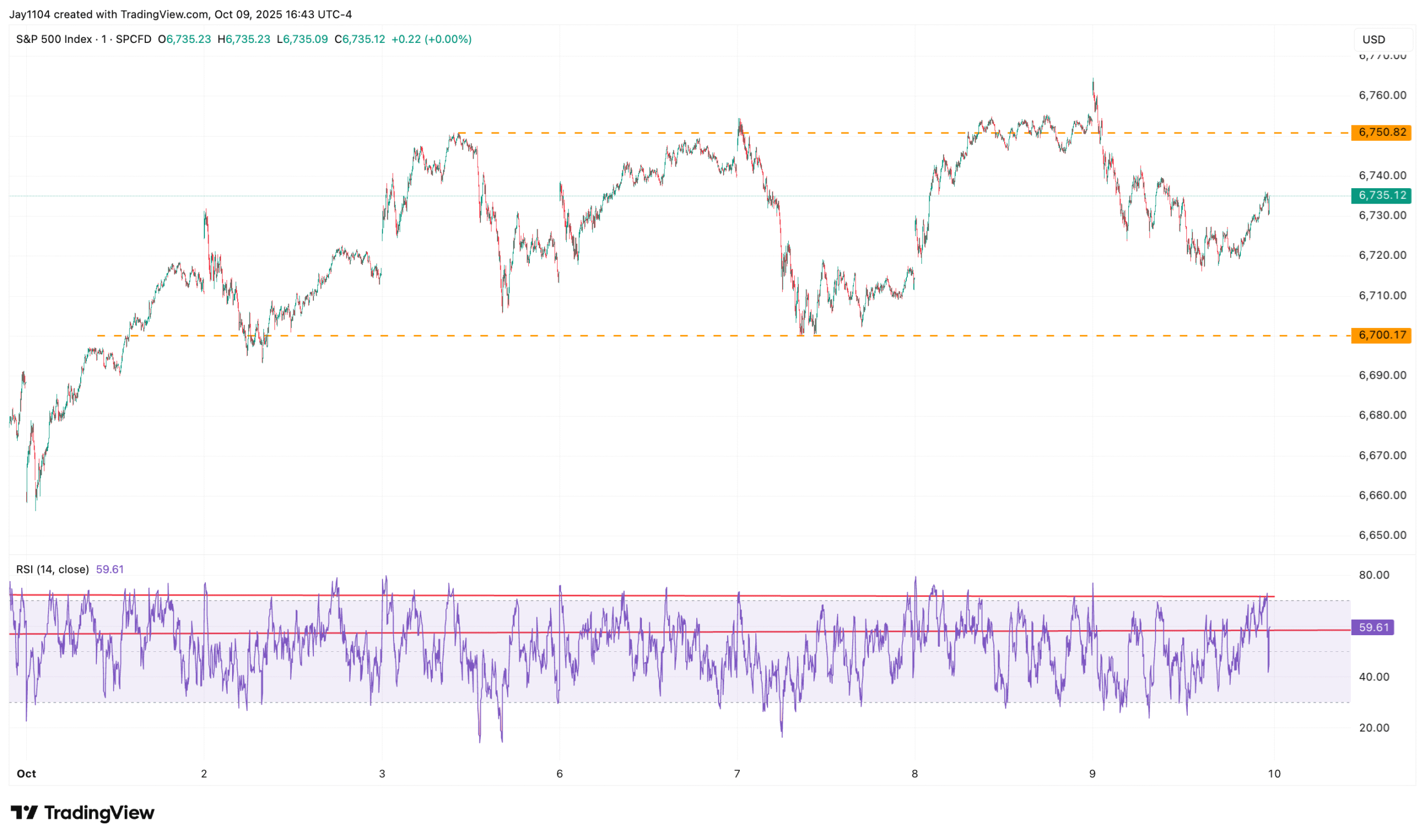
The Equal-Weight RSP ETF has a fairly well-defined rising wedge pattern, similar to the one that formed at the end of 2024.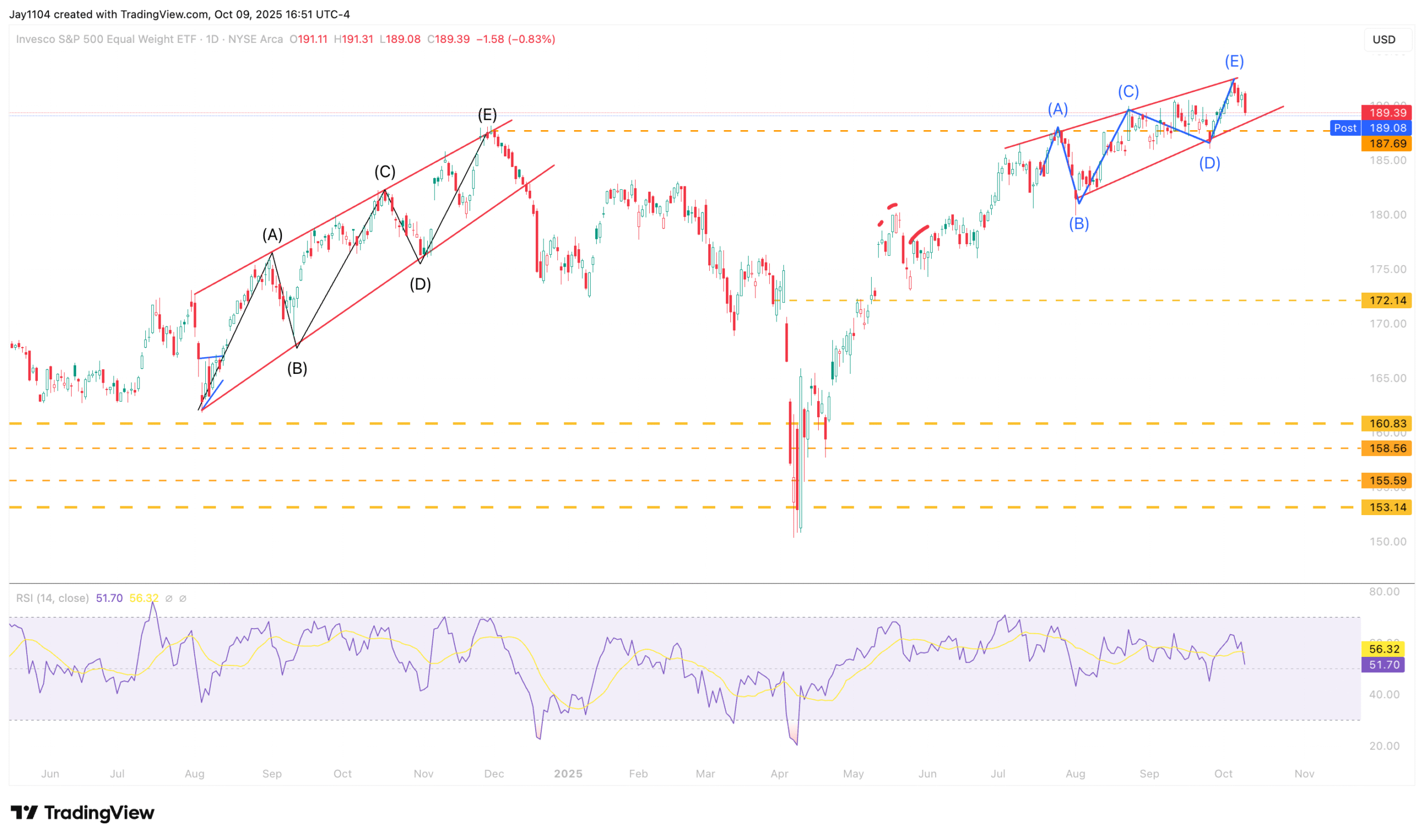
The HYG ETF clearly broke a long-term uptrend today and also fell below its 20-day moving average. This is the first time that has happened since April.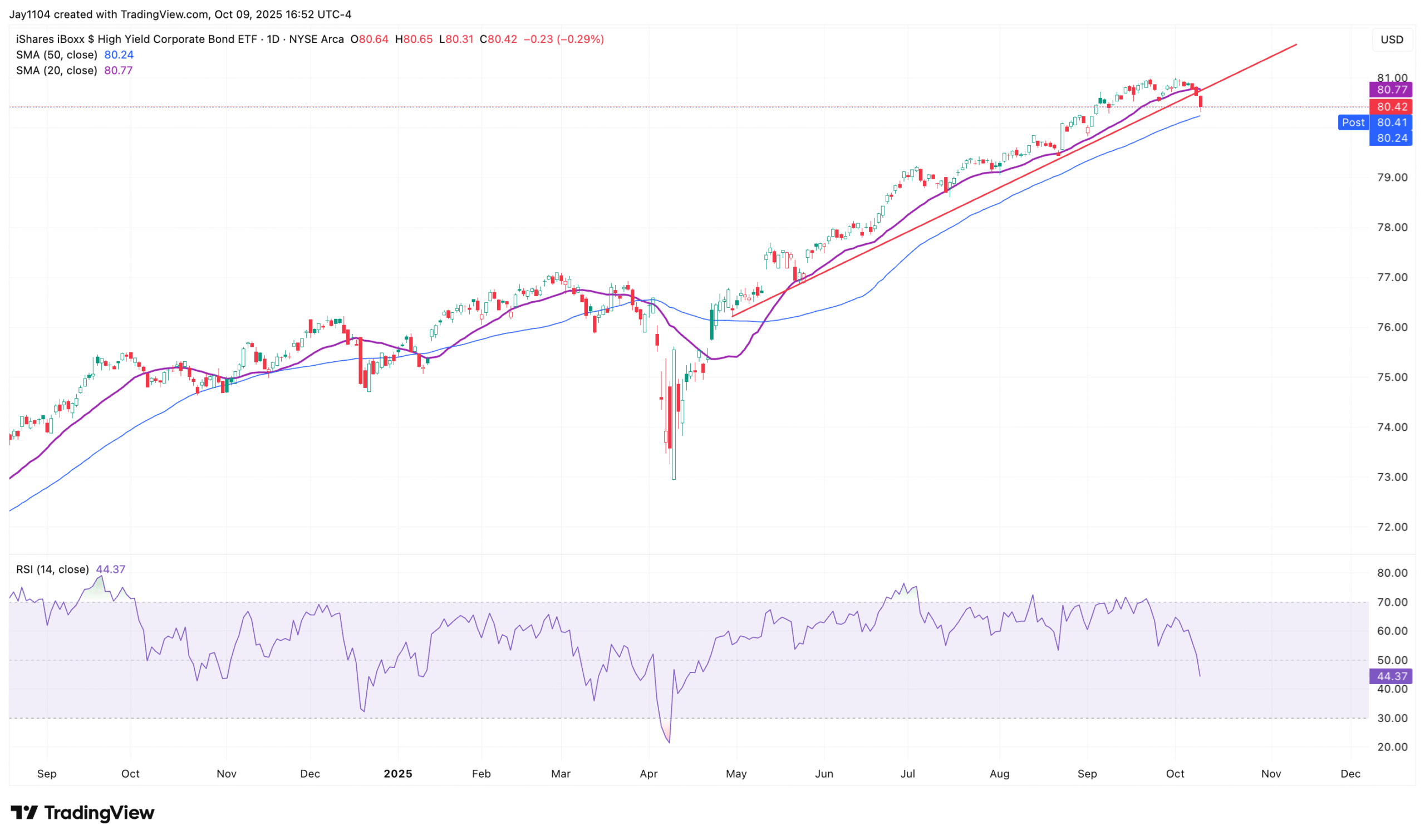
If you take the SHY ETF and divide it by the HYG ETF, you get a decent proxy for high-yield credit spreads. This ratio indicates that high-yield spreads are breaking out of a downtrend, with momentum now turning sharply higher.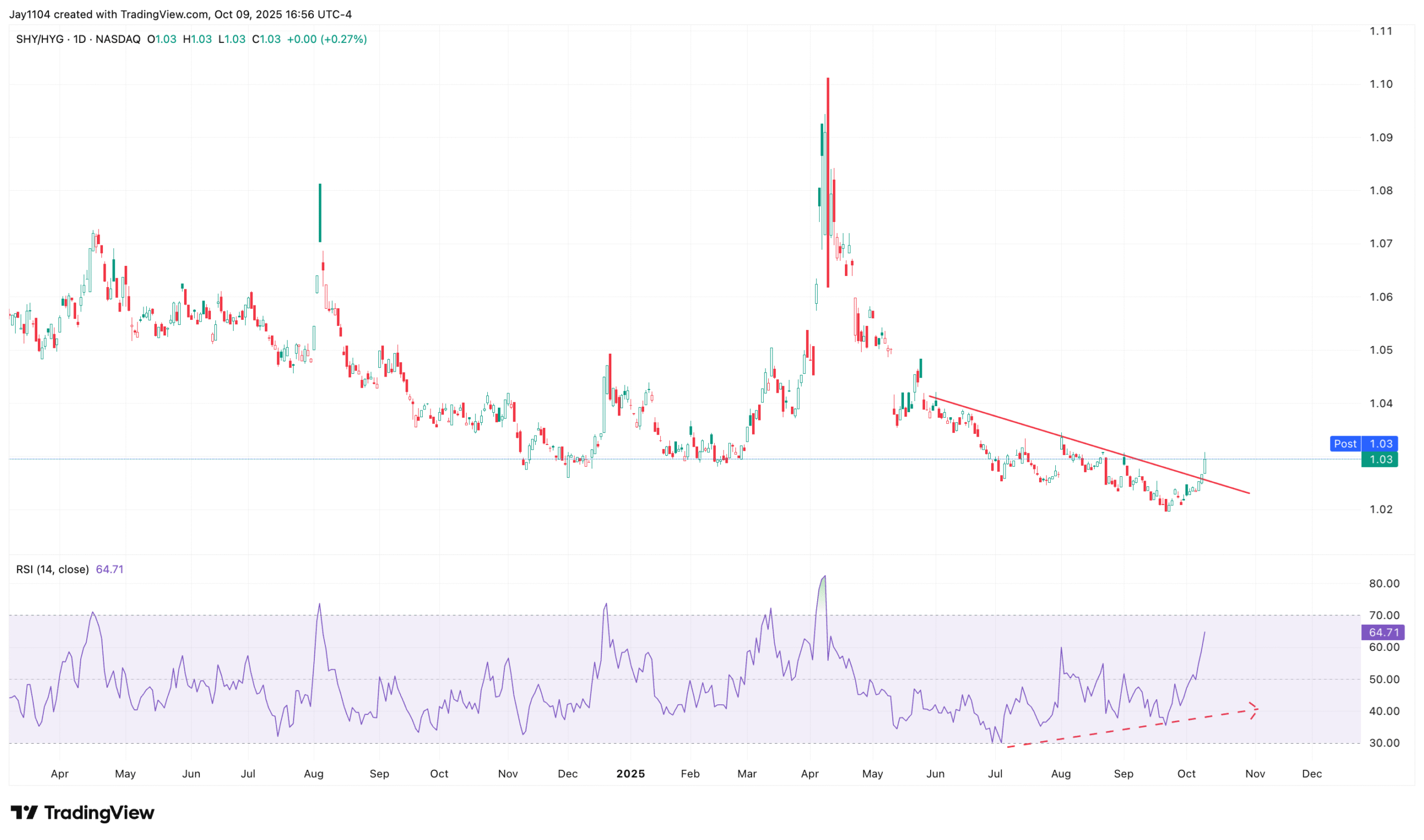
We’re also seeing the same development in European high-yield credit, as well as in sovereign markets, with Italian-German spreads showing signs of potential widening.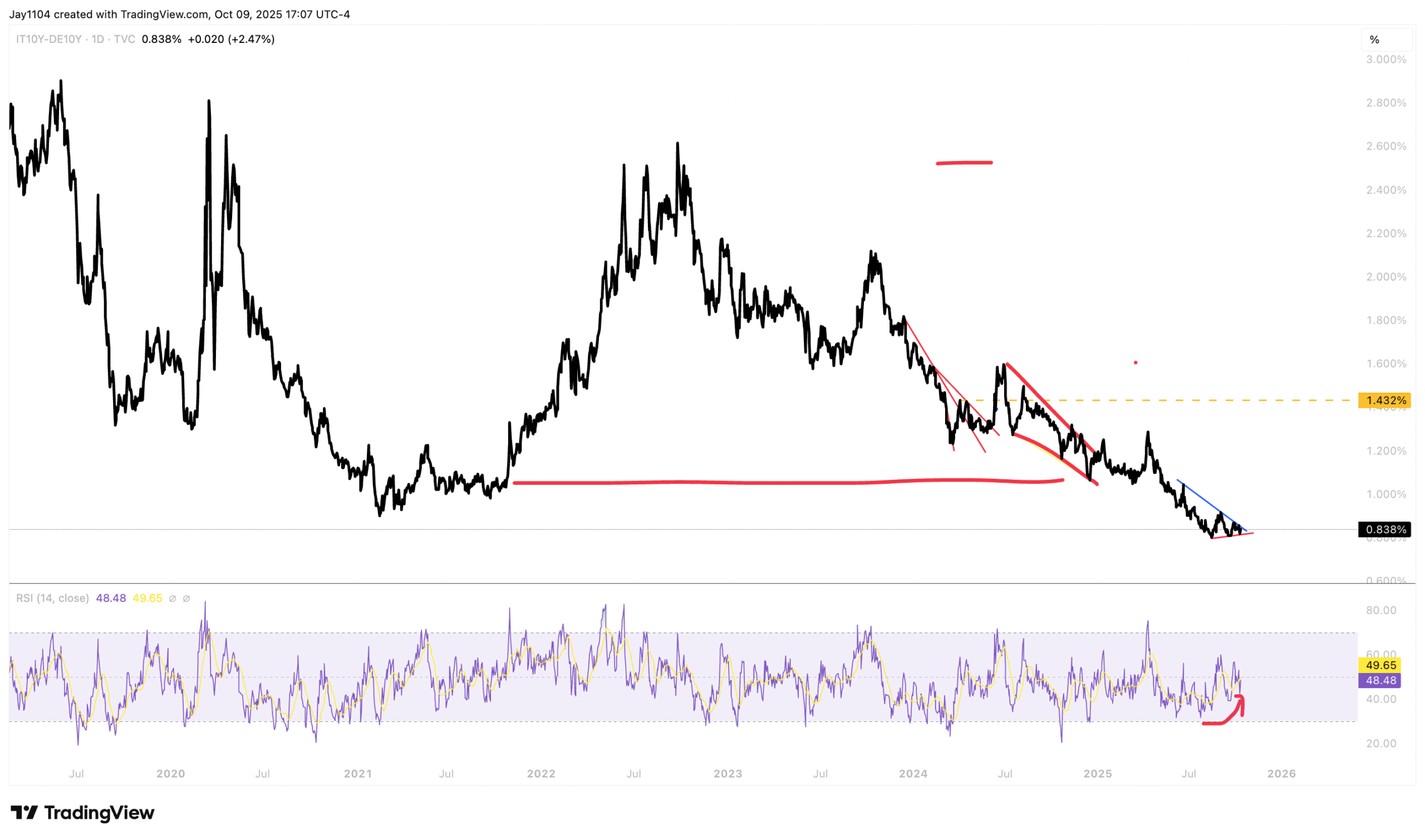
It appears that the market may be suddenly repricing risk. The regional bank KRE ETF has also broken its uptrend and is clearly trending lower.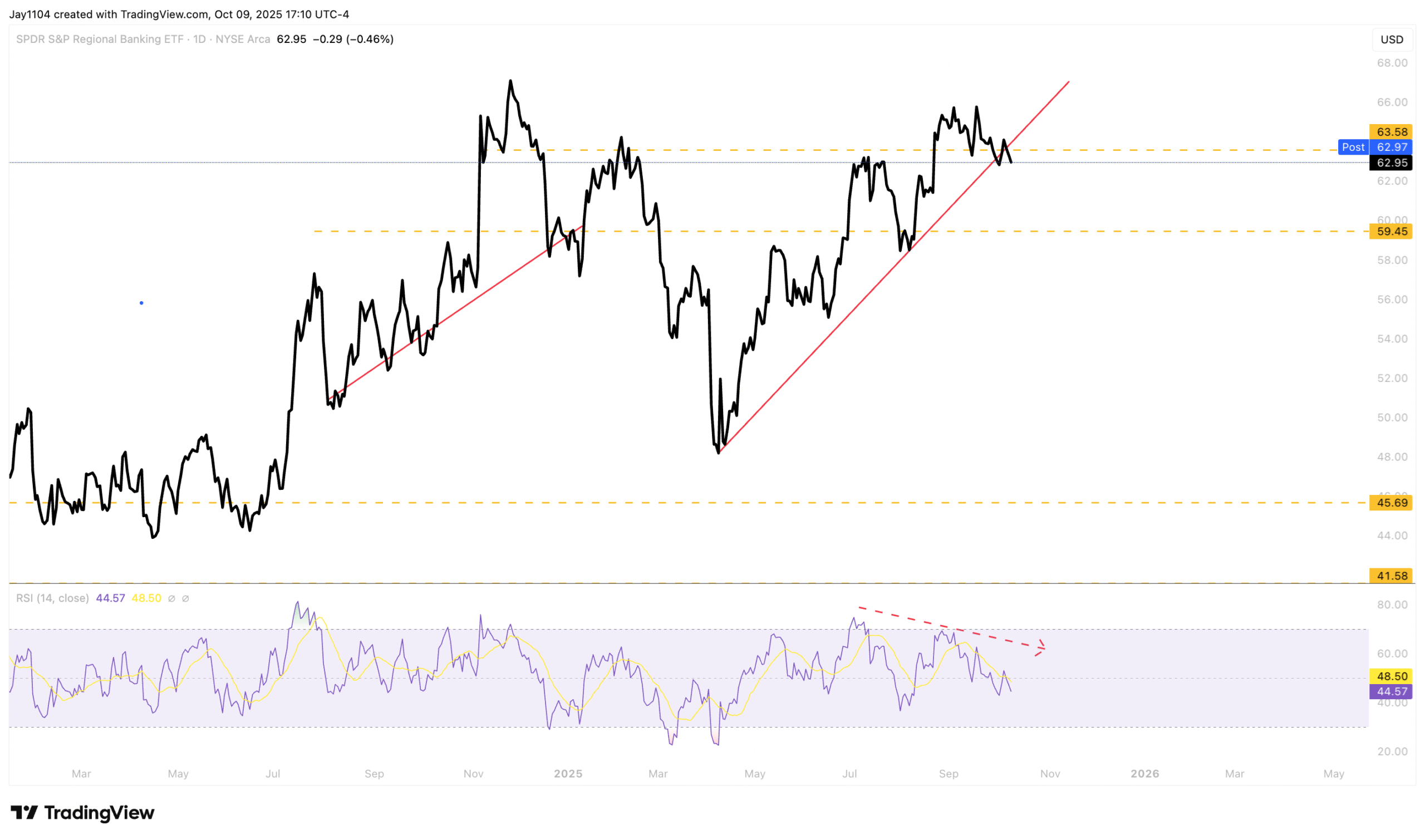
It could very well be that the ghost of “liquidity gone” is starting to catch up with a broader swath of the equity market. Today, the effective federal funds rate ticked higher to 4.10% from 4.09%, up from 4.08% when the Fed cut on September 17. As of September 2023, do you know how many times the effective funds rate changed outside of a rate cut? Zero. Do you know how many times the EFFR has changed since September 2025 began? Two.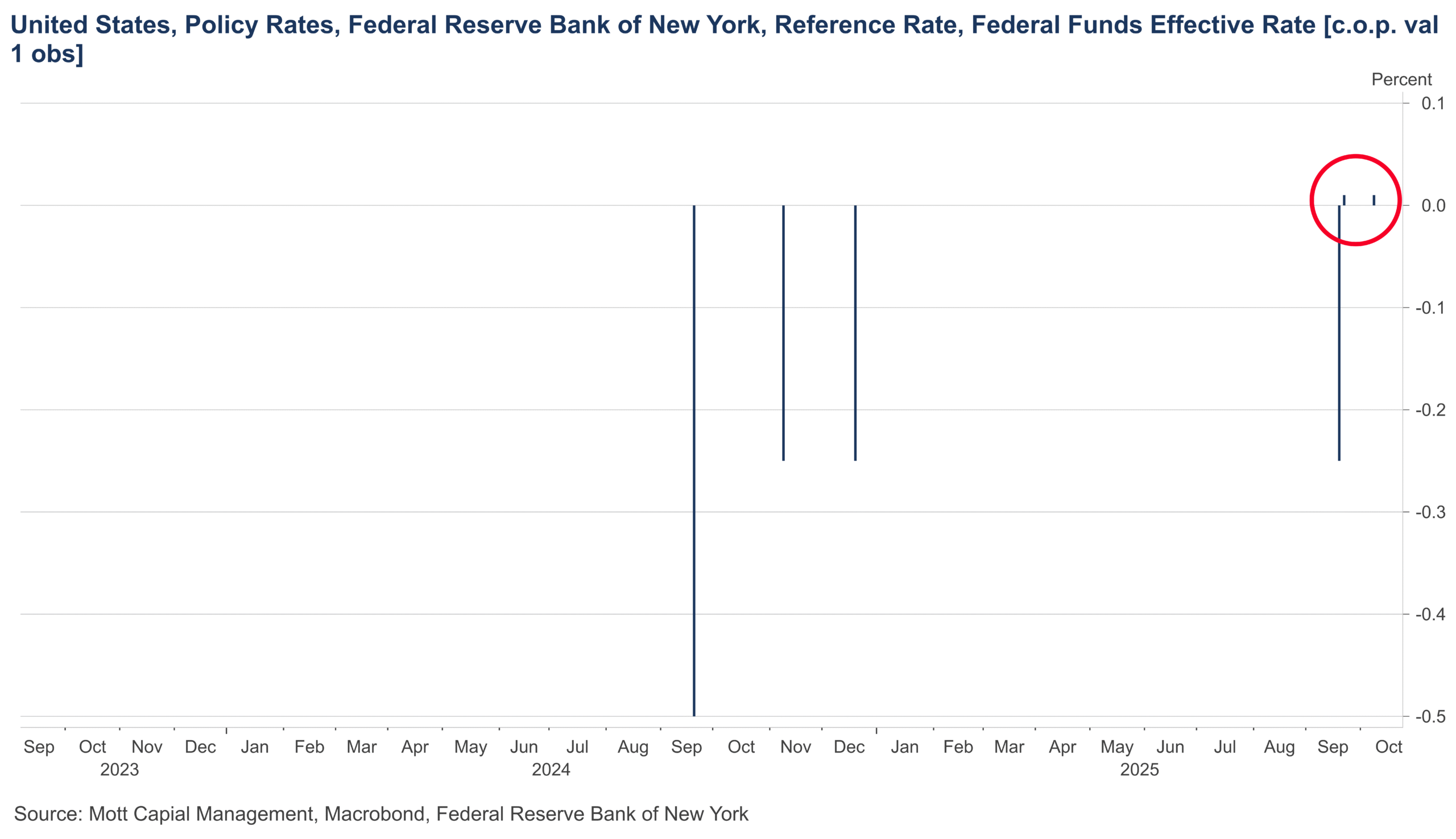
Meanwhile, the dollar continues to rally, and based on the EUR/USD chart, it may have strengthened even further. The EUR/USD just fell below support at 1.156, which means the next support region is around 1.14.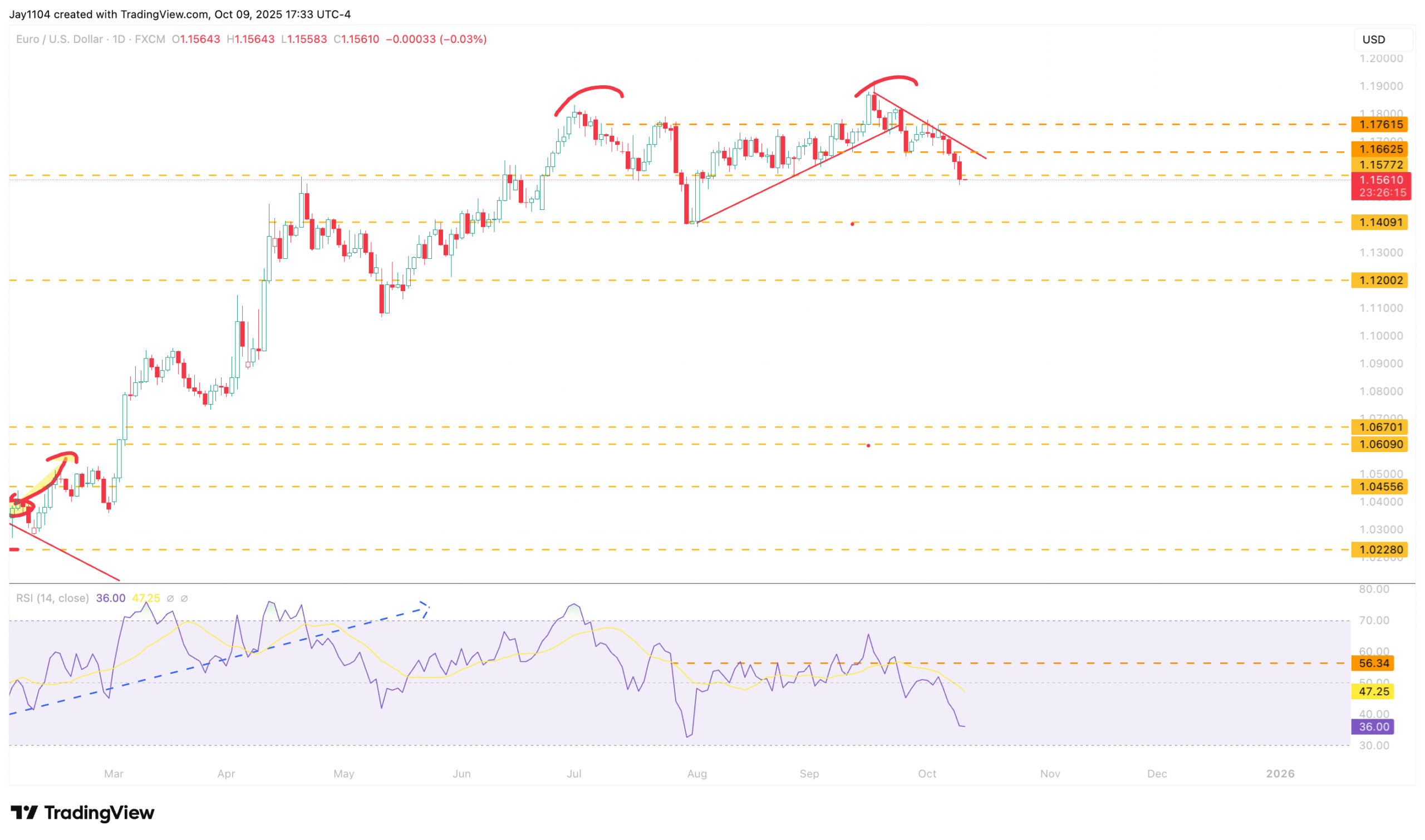
The 3 ghosts of tighter financial conditions—wider credit spreads, a stronger dollar, and tighter liquidity—are rising.
